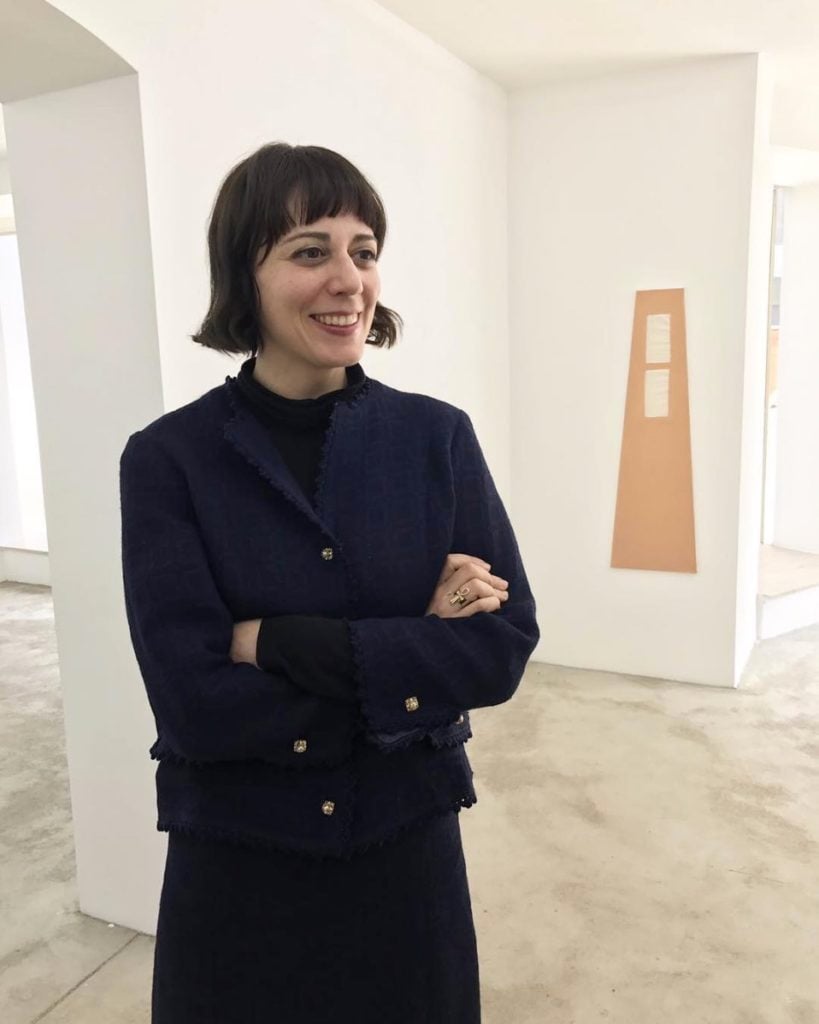Galleries
Forced to Close Her Gallery, Berlin Dealer Micky Schubert Is Launching a Brooklyn Art Incubator Instead
She's doing it with Wallspace founder Janine Foeller, and they plan to address the challenges facing mid-sized galleries.

She's doing it with Wallspace founder Janine Foeller, and they plan to address the challenges facing mid-sized galleries.

Henri Neuendorf

On the eve of Berlin Art Week, the excitement sweeping the city was dampened by news that Micky Schubert—a mainstay of the Berlin scene—would become the latest mid-size gallery to close its doors.
But the eponymous dealer, who opened her gallery in the trendy district of Kreuzberg in 2006, is not throwing in the towel just yet. She already has a new initiative in the works aimed at supporting other mid-size art businesses—and, hopefully, helping them avoid the same fate.
Micky Schubert represented the likes of Ketuta Alexi-Meskhishvili, Thea Djordjadze, and Sue Tompkins. The gallery’s final show, of work by the Romanian artist Marieta Chirulescu, closed on July 22, before the summer break. Monopol first reported the permanent closure after noting that Schubert was conspicuously absent from the list of participants in Art Berlin, which opens later this week.
Confirming the closure in an email to artnet News, Schubert said her motivations were personal. “The gallery made enough money to survive, but that’s just not enough for a healthy living,” she said. “I close without any debt, clean and clear like I always ran it.”
Asked if there is a future for mid-size galleries such as her own, Schubert was pragmatic. “I don’t know,” she said. “Obviously not for me and many others. I guess time will answer this question.”
Schubert’s next venture, already in the works, is an effort to make the art-dealing business more sustainable. She is teaming up with another former dealer—Janine Foeller, the co-founder of former New York gallery Wallspace (which closed last summer)—to launch Grand Army Collective, a flexible space for short-term projects and exhibitions.
The Brooklyn-based initiative, which launches on September 22, is a response to the very challenges that forced its founders’ galleries to close. It seeks to provide a “support network of peers and artists by providing flexible and affordable exhibition platforms that encourage sustainability, risk-taking, and curatorial rigor.”
The Prospect Heights space will debut with presentations by New York galleries Bureau and Real Fine Arts, Paris-based publishers Onestar Press and Three Star Books, and a series of exhibitions and performances organized by Schubert and Foeller.
Over the next six months, the venue will also host Berlin’s Supportico Lopez, London’s Herald Street, and Shanghai’s Antenna Space, among other galleries.
On Grand Army Collective’s website, the former dealers say that the project is “about reigniting the camaraderie, diversity, and experimentation that was once so integral to the overall health of the art world.”